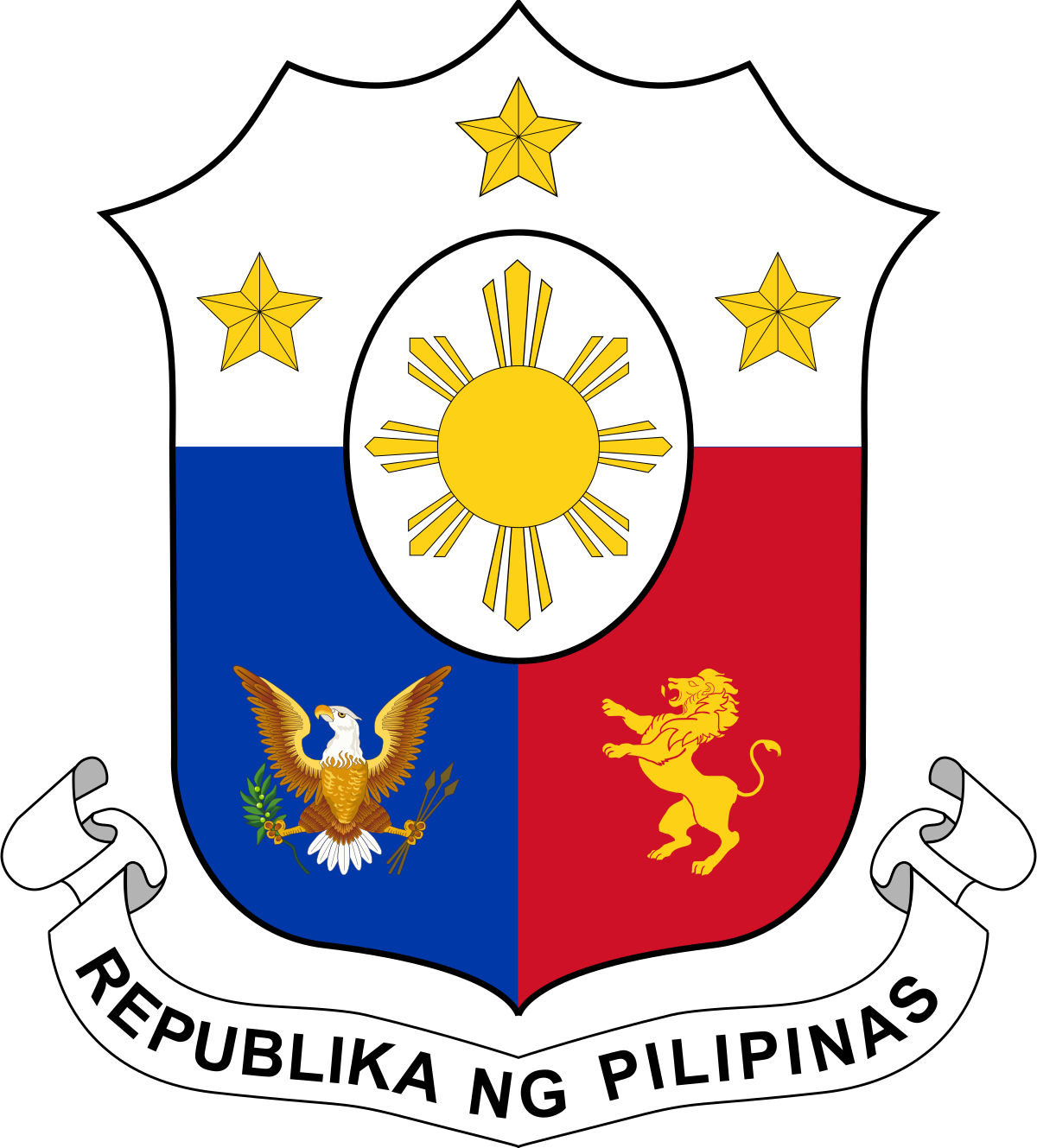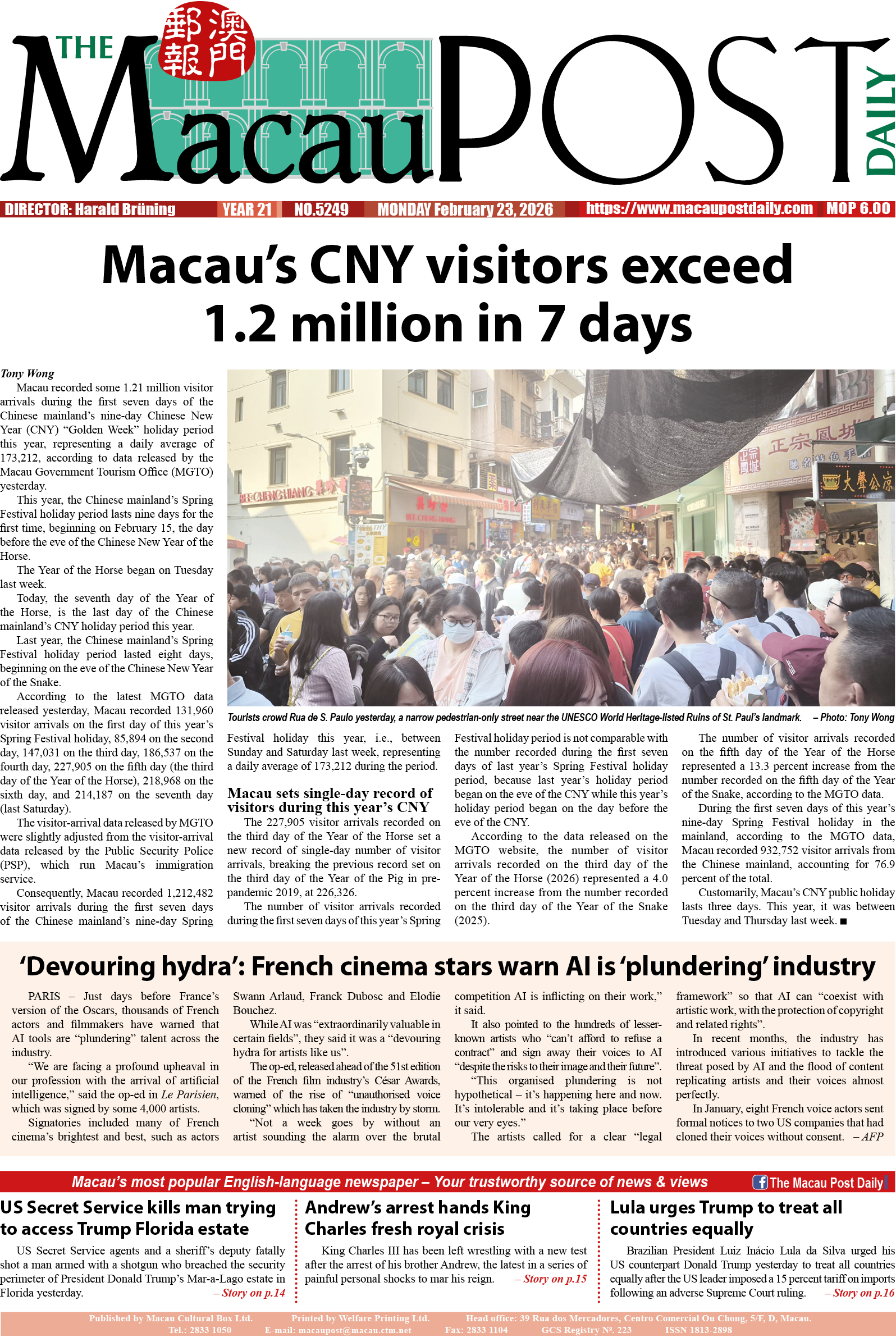Addressing yesterday’s press conference about Macau’s novel coronavirus situation, Health Bureau (SSM) Control of Communicable Diseases and Surveillance of Diseases Department Coordinator Leong Iek Hou said that the Macau government has been intensively preparing itself to tackle the potential threat from the Omicron variant which is spreading to a rising number of countries and regions.
Leong said that the Macau government is paying close attention to the Omicron variant as the World Health Organisation (WHO) classified it as a “variant of concern” last week. Leong said that according to the WHO, it is not yet clear whether the Omicron variant is more transmissible, or causes more severe illnesses compared to other COVID-19 variants including Delta.
Leong pointed out that the WHO is studying whether the Omicron variant reduces the efficacy of the COVID-19 vaccines that are being used worldwide.
Leong reassured the public that nucleic acid tests (NATs) carried out in Macau can detect the novel coronavirus from samples carrying the Omicron variant. In addition, Leong said, the Health Bureau’s viral genome sequencing is able to identify whether a COVID-19 sample is carrying the Omicron variant or other COVID-19 variants.
Leong underlined that the Macau government always carries out its COVID-19 prevention work in strict adherence with the nation’s novel coronavirus prevention strategy of guarding against imported cases and the possibility of new locally transmitted cases. Leong pointed out that in response to the potential threat from the Omicron variant, the Macau government has imposed a blanket entry ban on all air passengers who have been to any of eight African countries within 21 days prior to their intended entry into Macau.
The Omicron variant, which was discovered by virologists in South Africa last month, is now spreading to a rising number of countries and regions across the world.
According to international newswire reports, the Omicron variant is raising concern worldwide given its large number of mutations, which, according to virologists, might cause it to be more contagious than the Delta variant, and help it evade antibodies from prior infection or vaccination.
Germany’s BioNTech announced a few days ago that it has started to develop a vaccine tailored for the Omicron variant.
Officials from the State Council Joint COVID-19 Prevention and control Mechanism announced yesterday that the central government is advancing its work to develop COVID-19 vaccines tailored for the Omicron variant.
Asked during yesterday’s press conference about the development of COVID-19 vaccines tailored for the Omicron variant, Leong said that so far no biopharmaceutical company worldwide has confirmed whether it will produce novel coronavirus vaccines tailored for the Omicron variant.
Leong said that if COVID-19 vaccines tailored for the Omicron variant with good efficacy become available in the market – i.e., after such vaccines have been successfully developed and their use has been approved by the respective regulatory agencies, the Macau government would certainly buy them as soon as possible.
Classifications of asymptomatic & confirmed cases
Meanwhile, Leong announced yesterday that from now on Macau will separately classify and announce asymptomatic COVID-19 cases and confirmed COVID-19 cases.
Before the new classification scheme that was announced by Leong yesterday, the Macau Health Bureau had classified all those who had tested positive for the novel coronavirus in a nucleic acid test (NAT) as confirmed COVID-19 patients since the pandemic which started early last year – regardless of whether they had come down with COVID-19 symptoms, unlike the mainland health authorities which have always separately classified asymptomatic COVID-19 cases and confirmed COVID-19 cases.
Leong said that in order to further align Macau’s COVID-19 measures with the mainland’s, the Macau Health Bureau will now adopt the classification and definition scheme for COVID-19 cases formulated by the central government’s State Council Joint COVID-19 Prevention and control Mechanism team, which means that Macau will now also separately classify and announce asymptomatic cases and confirmed cases.
Leong pointed out that asymptomatic cases refer to people who have tested positive for COVID-19 in a nucleic acid test but develop no symptoms such as fever, cough, fatigue, sore throat, reduced sense of smell or taste, and diarrhoea, and whose computed tomography (CT) scan shows no pneumonia.
According to Leong, confirmed cases refer to those with a positive COVID-19 NAT result who develop symptoms and whose CT scan shows pneumonia, or unjabbed people who have tested positive for both immunoglobulin M (IgM) antibodies and immunoglobulin G (IgG) antibodies (with symptoms and a CT scan showing pneumonia).
Macau has not recorded a new local COVID-19 case for 54 consecutive days after the latest case was confirmed on October 9. Macau’s COVID-19 tally stands at 77, without any fatalities. All 77 patients have been discharged from hospital.
In reply to media questions, Leong said that the Health Bureau will not change the classification of COVID-19 cases of the 77 patients on its website, as the new classification scheme only gets off the ground now.
Leong also said that the new measure is merely a change in the classification of COVID-19 cases, which means that all those who have tested positive for COVID-19 will continue to be required to undergo isolation hospital treatment until recovery, after which they will have to undergo their recovery period isolation at the Health Bureau’s quarantine facility in Coloane, regardless of whether they are asymptomatic.
Arrangements for Olympic gold medallists’ possible visit
Leong was asked during yesterday’s press conference about the Macau government’s COVID-19 entry measures for the national sports team’s Olympic gold medallists who will possibly visit Macau soon. The national sports team’s Olympic gold medallists start their three-day visit to Hong Kong today. The Macau Sports Bureau (ID) told reporters last week that it has been constantly discussing with the central government’s General Administration of Sport the possibility of having mainland Chinese Olympic gold medallists visit Macau.
The Health Bureau told reporters later last week that whether those arriving in Macau will need to undergo quarantine always depends on their travel history, according to which all those arriving in Macau who have been to a medium-risk or high-risk COVID-19 area within the past 14 or 21 days must undergo hotel quarantine – otherwise they will not have to quarantine – “regardless of whether they are Olympic gold medallists from the national sports team”.
The Macau Post Daily asked during yesterday’s press conference whether the Macau government’s quarantine-free travel arrangements for arrivals from Hong Kong would possibly get off the ground before the possible visit to Macau by the national sports team’s Olympic gold medallists later this month arriving from Hong Kong. In her reply, Leong reaffirmed that all those arriving in Macau are always subject to the local government’s COVID-19 entry and quarantine measures in line with their respective travel history, a policy which she said will not be affected by a possible visit to Macau by the national sports team’s Olympic gold medallists.
Leong went on to say that “of course we hope that quarantine-free travel arrangements between Hong Kong and Macau will have got off the ground when the national sports team visits Macau, in which case of course they will not have to undergo quarantine”.
“If they come to Macau directly from Hong Kong [and Macau then has still not lifted its quarantine for arrivals from Hong Kong], they will have to undergo quarantine based on our current COVID-19 entry and quarantine measures,” Leong said.
Meanwhile, Leong also announced that contact-tracing-function QR codes are now available at the government’s various premises and facilities for Macau Health Code mobile app users to scan so that they can record their whereabouts on their smartphones – i.e., records showing that they have visited the respective premises or facilities.
Jab rate of just 0.2 pct among kids below 12
Meanwhile, Leong said that only 101 children aged below 12 have been inoculated against COVID-19 since Macau lowered the minimum age for Sinopharm jabs from 12 to 3 on Tuesday last week, representing a vaccination rate of a mere 0.2 percent among those aged between 3 and 11. Leong underlined that the lowering of the minimum age has only been implemented for a short time, apart from the fact that examinations in local schools have been taking place in recent days.
In addition, Leong said that she did not rule out the possibility that many schoolchildren have been inoculated against seasonal flu recently, because of which they will have to wait two weeks before they can get their COVID-19 jabs.

Health Bureau (SSM) Control of Communicable Diseases and Surveillance of Diseases Department Coordinator Leong Iek Hou addresses yesterday’s press conference about the city’s COVID-19 situation. Photo: GCS








